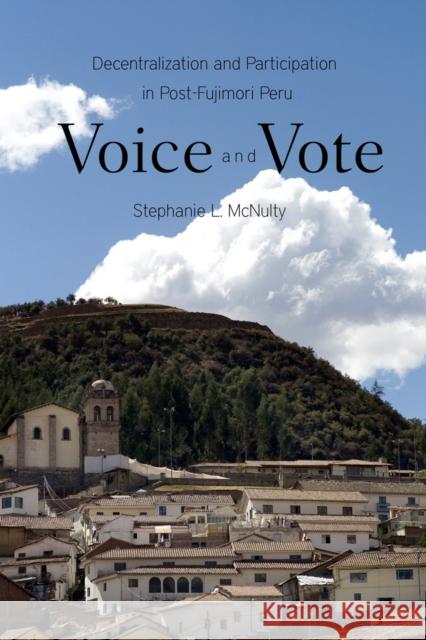Voice and Vote: Decentralization and Participation in Post-Fujimori Peru » książka
Voice and Vote: Decentralization and Participation in Post-Fujimori Peru
ISBN-13: 9780804773980 / Angielski / Miękka / 2011 / 224 str.
Voice and Vote: Decentralization and Participation in Post-Fujimori Peru
ISBN-13: 9780804773980 / Angielski / Miękka / 2011 / 224 str.
(netto: 93,05 VAT: 5%)
Najniższa cena z 30 dni: 97,50
ok. 22 dni roboczych.
Darmowa dostawa!
In the months following disgraced ex-President Alberto Fujimori's flight to Japan, Peru had a political crisis on its hands. The newly elected government that came together in mid-2001 faced a skeptical and suspicious public, with no magic bullet for achieving legitimacy. Many argued that the future of democracy was at stake, and that the government's ability to decentralize and incorporate new actors in decision-making processes was critical. Toward that end, the country's political elite devolved power to subnational governments and designed new institutions to encourage broader citizen participation. By 2002, Peru's participatory decentralization reform (PDR) was finalized and the experiment began. This book explores the possibilities and limitations of the decision to restructure political systems in a way that promotes participation. The analysis also demonstrates the power that political, historical, and institutional factors can have in the design and outcomes of participatory institutions. Using original data from six regions of Peru, political scientist Stephanie McNulty documents variation in PDR implementation, delves into the factors that explain this variation, and points to regional factors as prime determinants in the success or failure of participatory institutions.











